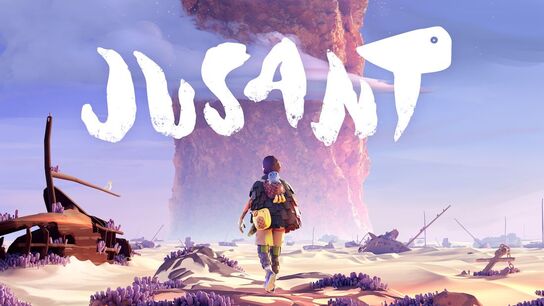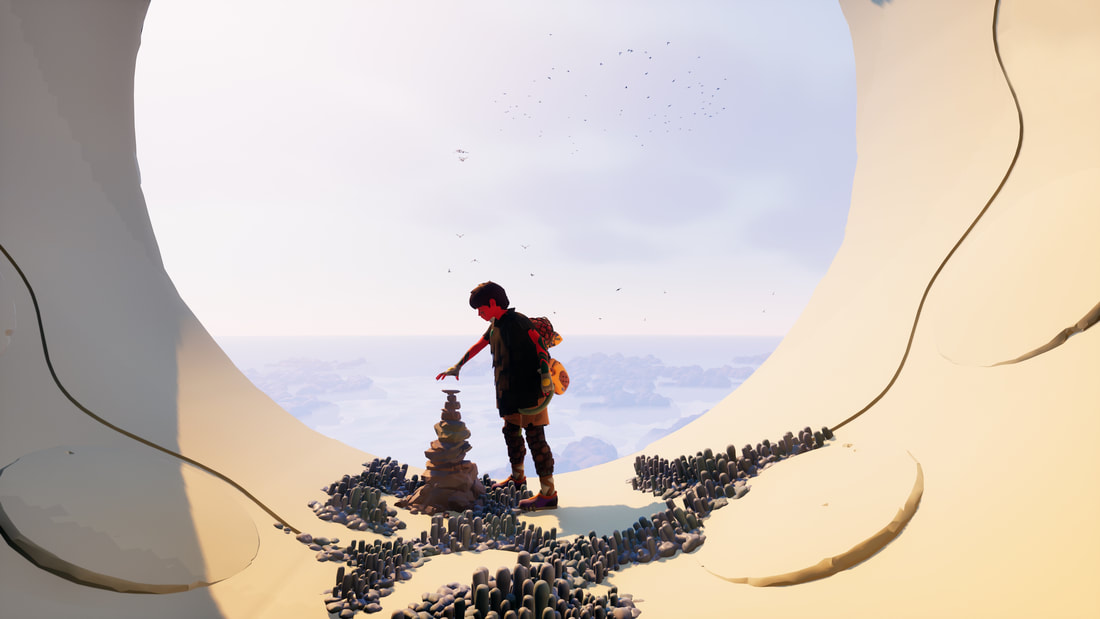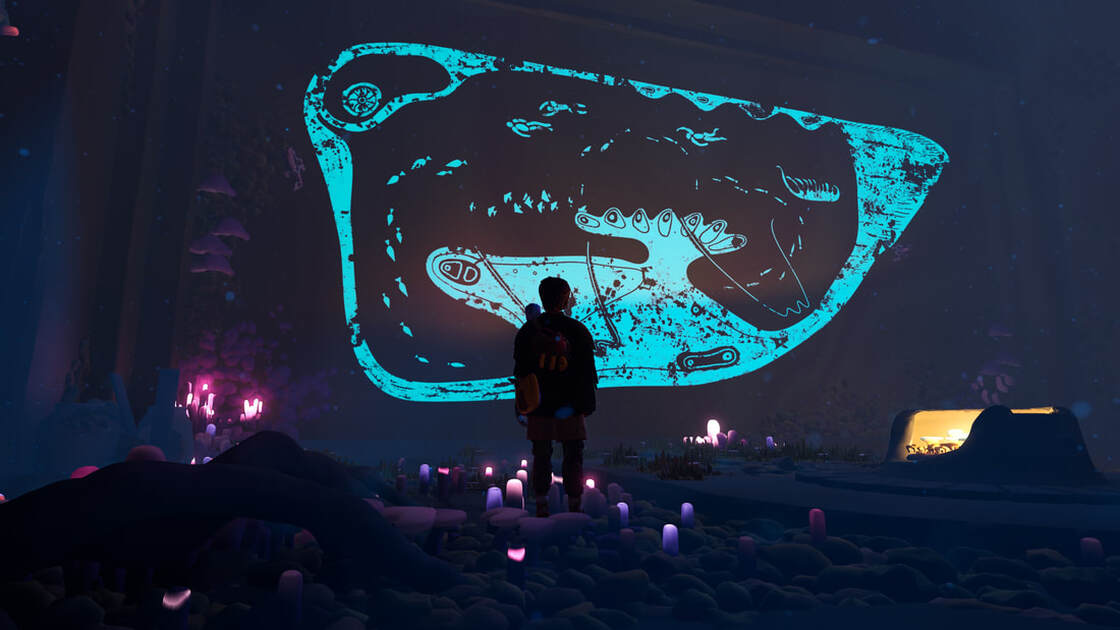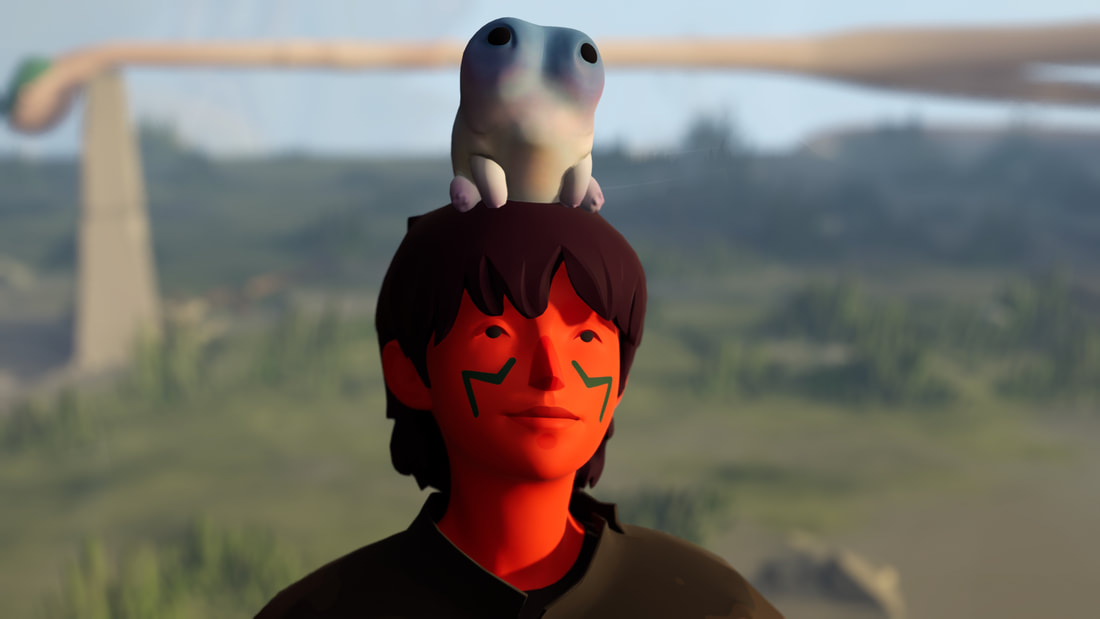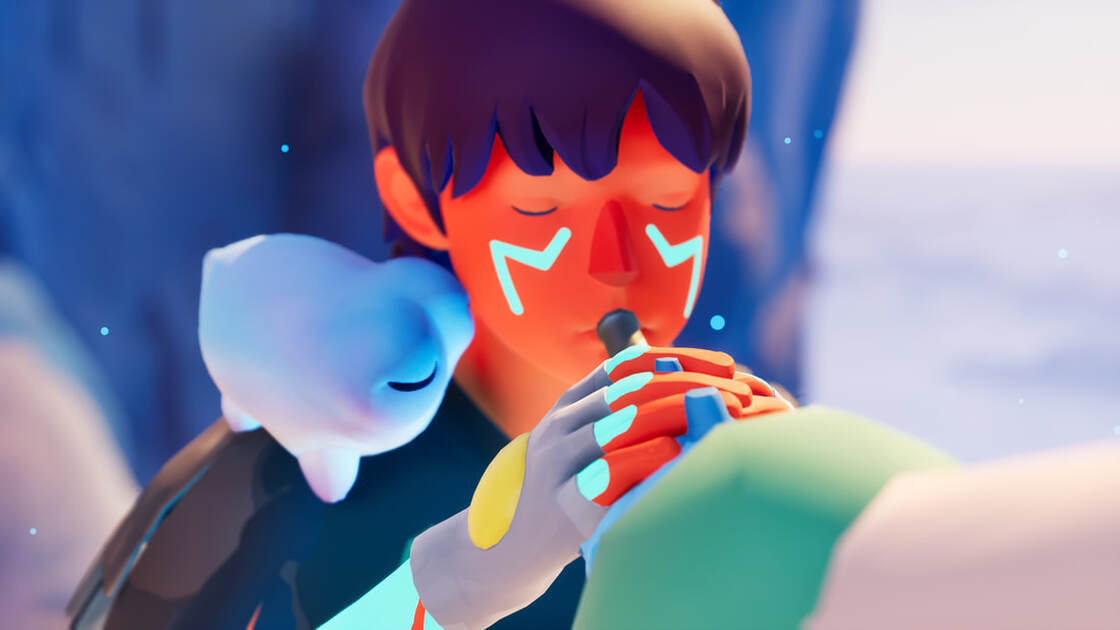Jusant is a video game with climbing at its center. The game was officially released on October 31, 2023 across PlayStation 5, Xbox Series X and Series S, and Microsoft Windows platforms. Common Climber reached out to Don't Nod to interview Kevin Poupard, a Co-Creative Director of Jusant, to learn more.
|
|
The first question I have to ask is, do you rock climb? If so, tell us more - When did you begin? What style(s) do you like to climb?
Actually I started climbing after we got this project on track! My initiation to climbing was about 6 months after we started creating Jusant. I spent three hours climbing in Verdon, France, and then I began indoor bouldering, which I still practice today. Other's on our team climb with indoors with ropes, but really we are a team of neophytes with the practice of climbing.
How did you decide to use climbing as the centerpiece of your video game?
The first concept we had for the game to tell a story of an unknown character who had to get to the top of some kind of natural tower. From there we asked ourselves how this character would be able to achieve this task. What kind of abilities would this character have? Walking? Climbing? Flying? Use of plants or nature?
We liked the idea of climbing because it’s demanding. The metaphor behind such an effort to achieve "reaching the top" was very powerful to us. We also appreciated the interaction with nature that outdoor climbing entails. Climbing felt like an interesting gameplay because could be both the core mechanical element of the game and the central vector of the metaphors. Eventually, our overall goal became to tell a poetic story of strength with an environmental allegory behind it.
As we researched climbing and the potential use of climbing in video games - as well as engaged with it ourselves - we also realized how powerful the potential bond could be between the players and the game character. That’s one of the reasons we kept the movement on the triggers, to keep the intensity during the play.
We liked the idea of climbing because it’s demanding. The metaphor behind such an effort to achieve "reaching the top" was very powerful to us. We also appreciated the interaction with nature that outdoor climbing entails. Climbing felt like an interesting gameplay because could be both the core mechanical element of the game and the central vector of the metaphors. Eventually, our overall goal became to tell a poetic story of strength with an environmental allegory behind it.
As we researched climbing and the potential use of climbing in video games - as well as engaged with it ourselves - we also realized how powerful the potential bond could be between the players and the game character. That’s one of the reasons we kept the movement on the triggers, to keep the intensity during the play.
Above: Cover art and introductory clips from the Jusant video game. (NOTE: The video game itself is high resolution, clips are lower resolution for web.)
Tell us about your background - Do you draw? Do you program?
Personally, I don’t draw or program. I come from a video game design background. I used to be a designer creating gameplay and building level designs. Our Artistic Director has a concept-artist background and our Technical Director is a programmer, so we have all these profiles as part of a team - which is what is required when you create a video game.
What does it take to create a video game? Tell us about the process, how many people are involved?
Creating a video game requires a lot of patience and people. And, there is a fair amount of pressure and doubts 😊.
The process to create this is common in the industry. Our company, Don't Nod, was looking for a new team to create a new IP (intelligence property). At this time there were six of us. We had just finished creating our last game "Life is Strange 2." The company's direction committee gave us what we call a "mandate," which states the budget for the game creation, the maximum number of people on the team, the platforms for the game, and the time of production.
We started as a core team of six people and ended up with around almost forty people. It took 3.5 years after to finish the game.
The process to create this is common in the industry. Our company, Don't Nod, was looking for a new team to create a new IP (intelligence property). At this time there were six of us. We had just finished creating our last game "Life is Strange 2." The company's direction committee gave us what we call a "mandate," which states the budget for the game creation, the maximum number of people on the team, the platforms for the game, and the time of production.
We started as a core team of six people and ended up with around almost forty people. It took 3.5 years after to finish the game.
How "picky" were you to try to get the climbing movements to look like or resemble rock climbing?
Very. Since climbing is our core mechanic, we wanted to give a real artistic direction and characterization to the body movement of our protagonist. It was clear from the beginning that Jusant would never be a climbing simulator, but it still had to look like your movement is close enough to real climbing.
Our main references for this were from a famous old French climber (who’s dead now) called Patrick Edlinger. He speaks of climbing like it’s dancing on rocks. That figure of speech was our main intention.
Our main references for this were from a famous old French climber (who’s dead now) called Patrick Edlinger. He speaks of climbing like it’s dancing on rocks. That figure of speech was our main intention.
|
|
Above: Climbing excerpts from the Jusant video game. (NOTE: The video game itself is high resolution, clips are lower resolution for web.)
Jusant has been described as a "meditative" game. Why did you decide to take that approach to the game instead of a "chasing, shoot-em-up" style?
Having a violent game, or competitive game was not the mood at all. Our approach delivers a strong message - we need to reconnect with nature and mind our planet.
From the beginning we wanted to deliver a message related to ecology and our relationship to nature. We choose a meditative approach, where you’re alone, relaxed, and surrounded by a colorful landscape, and mysterious atmosphere. This also helps players to focus on the climbing efforts and environmental narration.
We learned from the research we did for the game, there is a common mindset amongst climbers or alpinism communities, many appear to be humble towards nature, and connected to it. Climbers often talk about how small they feel when on top of a peak or how connected they feel to the rock. It makes you rethink our hubris as humans and our place among nature, as well asl, how amazing nature can be and why we should respect it.
From the beginning we wanted to deliver a message related to ecology and our relationship to nature. We choose a meditative approach, where you’re alone, relaxed, and surrounded by a colorful landscape, and mysterious atmosphere. This also helps players to focus on the climbing efforts and environmental narration.
We learned from the research we did for the game, there is a common mindset amongst climbers or alpinism communities, many appear to be humble towards nature, and connected to it. Climbers often talk about how small they feel when on top of a peak or how connected they feel to the rock. It makes you rethink our hubris as humans and our place among nature, as well asl, how amazing nature can be and why we should respect it.
I noticed your climber has a rope, so they are lead-rope-soloing. Why did you decide to include a rope instead of free soloing?
It’s funny you asked because early in the development we considered having the climber free solo. It’s a common for the player to die in video games, but in Jusant you can’t. For us dying felt outside of the mood and energy we were seeking for the game. So, you can’t climb without hooking the rope first to a wall. This helps players feel more confident and relaxed while they climb and face such heights - it's part of the meditative element.
Obviously there are some liberties taken in the lead-rope-soloing, such as these devices that are somehow attached to the wall that capture the rope, tell us more about those and how the devices and the lead-rope-soloing factors into the game.
Jusant is a solo game, and we had to make sure it stayed that way without too many constraints. We did a lot of research about climbing, alpinism, and techniques to climb on your own. But at some point, it got too technical to be put in place in a realistic way. So, yes, we had to take some liberties because Jusant is a game of flow. We had to keep the flow going by avoiding setting up technical climbing constraints that would kill the sensation and stop the rhythm of progression.
Moreover, we created an imaginary world where verticality was the norm, and thus we invented a hooking system that the previous inhabitants would use as a normal way of moving along the tower. These devices would then be used by our character. For example, with big walls, climbing needs to be done in pitches, limited by the length of the rope. So, we created something similar. There are big structures where you can hook onto in the middle of a climb to retreive your rope and recharge your stamina.
Overall, we took what we learned from all our research about climbing and tried to reimagine it in a world like the one we created for Jusant.
Moreover, we created an imaginary world where verticality was the norm, and thus we invented a hooking system that the previous inhabitants would use as a normal way of moving along the tower. These devices would then be used by our character. For example, with big walls, climbing needs to be done in pitches, limited by the length of the rope. So, we created something similar. There are big structures where you can hook onto in the middle of a climb to retreive your rope and recharge your stamina.
Overall, we took what we learned from all our research about climbing and tried to reimagine it in a world like the one we created for Jusant.
|
|
|
Tell us more about the game itself. What are the goals, challenges, and rewards?
The goal is quite simple, you need to climb! We tried to create an immediate “call to action” with our introduction, where players feel like they need to climb to find out what is expected. But at some point, people understand that it’s an exploration game where you need to climb and find answers about what happened in this world the player is exploring and why everyone left.
Challenges are found in the climbing system itself, like the limited rope length and the limited number of pitons. The is also the challenge of analyzing the walls and where to climb. There are some environmental-specific challenges, like the sun impacting your stamina, or the wind that can carry you higher or block your jumps. Our main rewards are the beautiful environment, the pleasure of completing a wall, and acknowledging the distance the player has made so far and how much is left. We also added mystery and clues - shells that are remnants of the past, letters that give a bit of explanation about the exodus, frescos that show the old cycle of life and the symbiosis with nature, altars that play a sound and show a short, animated story. All these elements are made to push players to explore and understand the world they are exploring. |
Above: Mystery, clues, and intrigue - excerpts from the Jusant video game. (NOTE: The video game itself is high resolution, clips are lower resolution for web.)
Above: Wind and other environmental challenges are features in the Jusant video game.(NOTE: The video game itself is high resolution, clips are lower resolution for web.)
|
Jusant is an "all ages" game. Tell us more about that decision.
We wanted to deliver a strong ecological message, without giving any moral lessons, but more a message of hope. We wanted to make sure this message would be accessible to most and not to a select few. We consider our work as culture and culture should also be accessible to most people. Thus, it felt only natural to create an “all ages” game.
|
|
What has the response been to Jusant? Have you heard from climbers?
So far, the critics from specialized press have been awesome. We are very proud and happy to have such good press coverage.
We had a few comments from players who define themselves as climbers and they seemed seduced by Jusant. But that’s as far as it goes, so we are not able to give a proper statement about how Jusant is being received amongst climbing community. Maybe after this article this will change :)
What's on the horizon for you (video games or otherwise)?
Personally, I aim to keep practicing indoor bouldering, but I’d love to find a way to climb outdoors more, maybe even learn roped climbing. Work-wise, it’s too soon to tell :)
The company behind Jusant is called Don't Nod. Don't Nod takes a unique approach to video games. Tell us more.
Well, it’s difficult to state that Don’t Nod’s approach is unique, as so many games are being made every day. But at least we try to propose different gaming experiences that involve strong narration and sometimes, strong core gameplay (just like we did in Jusant - short experiences that revolve around one simple mechanic and that delivers a strong political message - in Jusant that is an ecological message.
Any last words for our readers?
Thanks a lot for allowing us to have a voice in a climbing magazine! It means a lot to us. Even if we’re not part of this community, we strongly believe that games, through their virtual experiences, can have a voice about strong subjects. Hopefully Jusant will incite people to go outdoors to climb or hike. Maybe this article will create a tiny bridge and bring people to discover our art and our industry as well. So, thank you for reading this and of course take care! Merci!
Website: https://dont-nod.com/en/games/jusant/
Instagram Handle: @dontnod_ent, https://www.instagram.com/dontnod_ent/
Other social media platforms: @DONTNOD_Ent, https://twitter.com/DONTNOD_Ent
How to Purchase the Game:
Instagram Handle: @dontnod_ent, https://www.instagram.com/dontnod_ent/
Other social media platforms: @DONTNOD_Ent, https://twitter.com/DONTNOD_Ent
How to Purchase the Game:
- On Steam: https://store.steampowered.com/app/1977170/Jusant/
- On PlayStation 5: https://store.playstation.com/concept/10006168/
- On Xbox Series X|S: https://www.microsoft.com/store/r/9pjb1zrjdcbq

